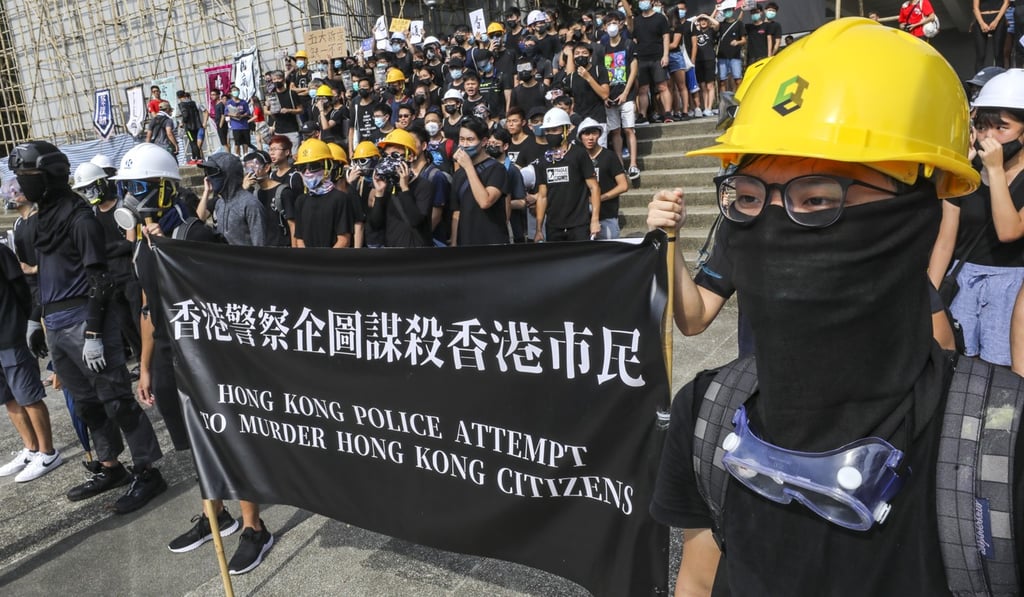Economic discontent a primary force behind Hong Kong unrest, researchers in Singapore say
- With many workers struggling to make ends meet and the young lacking a meaningful stake in the economy, hopes for a better future have been dashed, academics argue
- But others say there is a ‘reservoir of emotional rage and anger’ brewing and an overhaul of the ‘one country, two systems’ formula is needed

The major concerns among young people, who have been driving the protests, are bread-and-butter issues such as worsening inequality, the rising cost of living and competition for jobs with mainland Chinese migrants – all of which have dampened hopes for a better future, according to three researchers from the Lee Kuan Yew School of Public Policy’s Asia Competitiveness Institute (ACI).
Hong Kong’s Gini coefficient, which measures income inequality, shot up from 0.451 in 1981 to 0.539 by 2016. Property prices have continued to rise while the cost of living for ordinary residents – in 2011 only 63rd among 105 cities worldwide – had risen to 51st, according to ACI research.
Many workers found it difficult to make ends meet, said Tan Khee Giap, who is the case study’s principal investigator and a co-director of the ACI.

Between 1984 and 2018, average annual wage growth among workers up to the supervisory level edged up by just 1.12 per cent. In the same period, middle managers and professionals saw a mere 1.47 per cent rise.